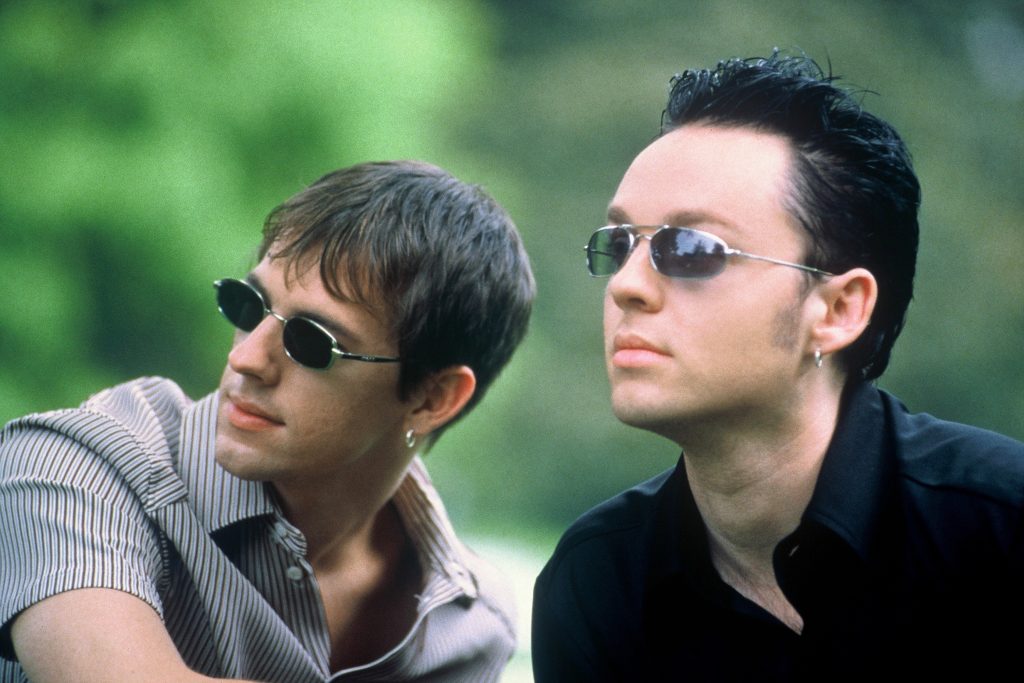Over the last five decades Goran Bregović has experienced major success as a band member, collaborator, film composer and solo performer.
His breakthrough came as the guitarist and composer for Yugoslav rock band Bijelo Dugme. Founded in Sarajevo in the early 1970s, the band achieved major success in Yugoslavia and internationally – a significant feat during the Communist era.
“Bijelo Dugme was in Communist times in Yugoslavia and Bijelo Dugme was a rock’n’roll band,” Bregović says. “Rock’n’roll in communist countries was more religion than music. So I still think that rock’n’roll on the Communist side of the world was much more important than rock’n’roll in the West. Probably not as music, but as a social phenomenon, for sure.”
After Bijelo Dugme split-up, Bregović moved into film soundtracks. He’s supplied the score for dozens of films including Emir Kusturica’s Time of the Gypsies and the Johnny Depp-starring, Arizona Dream. But despite forming a close bond with Kusturica, Bregović is reluctant to call himself a film composer.
“I did my first movie, Time of Gypsies, for Kusturica for friendship. I was a big rock star at that time and rock stars, they don’t make music for the movies. There is not enough glory and not enough money for that. But then when the war started we were in Paris, luckily, working on Arizona Dream and I was exiled in France during the war in my country,” he says.
“Because I had a gold record in ten countries in Europe, I had immediate proposals for the movies. So my movie career is mainly during the war. But since a long time ago I’m not really in the movies. When you are young you think you have time to explore millions of possibilities. At a certain age you understand that if you are lucky, you’ll have time to explore just one.”
Bregović’s latest album, Three Letters From Sarajevo, came out in 2017 and it’ll be the focus of his Australian tour in May. Also along for the ride are his Wedding & Funeral Band, a collection of vocalists, percussionists and horn players as well as a string section.
“Three Letters From Sarajevo, I was commissioned in Paris to write a concerto for violin and symphonic orchestra. So I started from two metaphors,” Bregović says. “I’m from Sarajevo and my first metaphor is Sarajevo. What you saw in Sarajevo ’91, we [see] now all around the world – today we can be good neighbours and tomorrow shoot each other just because we are from different religions.
“Another metaphor is violin, which was my first instrument. Violin is played in three main manners. Christian, how we play classical music; Jewish, how Jews play klezmer, which is a quite different technique; and Oriental, how Muslim plays in Orient, which is completely different technique. So I wrote one violin concerto for three violinists that come from those traditions.”
Bregović’s music contains a lot of traditional Balkan elements, itself a multilayered ethnic and cultural region, as well as Western European influences. He’s determined to not let his music be bound by arbitrary cultural differences.
“In this music I put together the things that are unimaginable together for politics or religion, because just in music this is simple,” Bregović says. “So on the record there is Hebrew, Spanish, English, Arab, there are artists from Tunis, from Tivoli, from Serbia.
“I put a message in a bottle and throw it in the ocean and probably someone will find it. I’m travelling the world and I’m presenting Three Letters From Sarajevo.”
Even after so many years working in music, Bregović continues to find great joy in live performance. “You know how they said that musicians they never go to retire, they just stop when there is no more music in them? Still if you ask me eight o’clock in the evening, ‘Goran Bregović where would you like to be tonight?’ I will tell you I would like to be onstage with my musicians.”
Goran Bregović comes to Hamer Hall with his Wedding & Funeral Band on Tuesday May 14. Tickets via the Arts Centre website.







